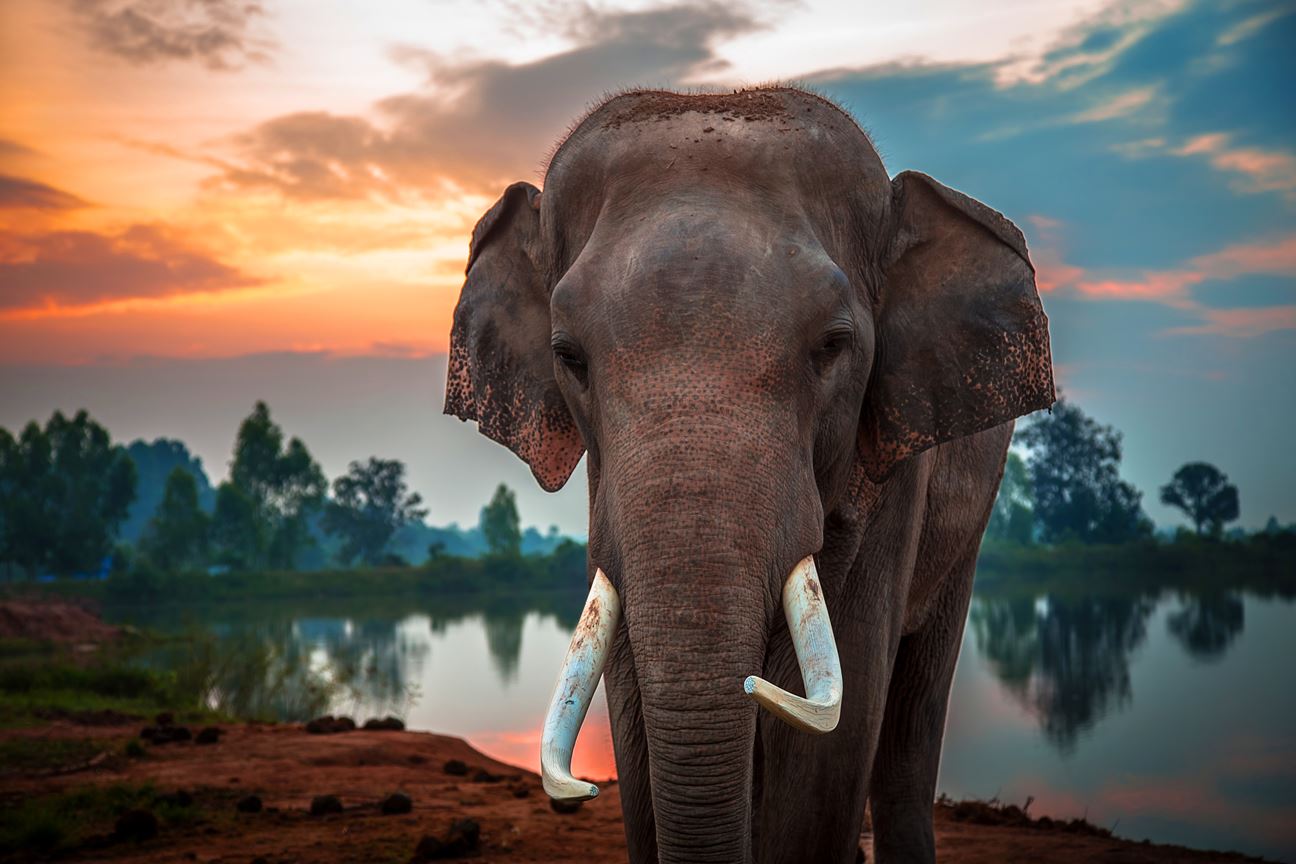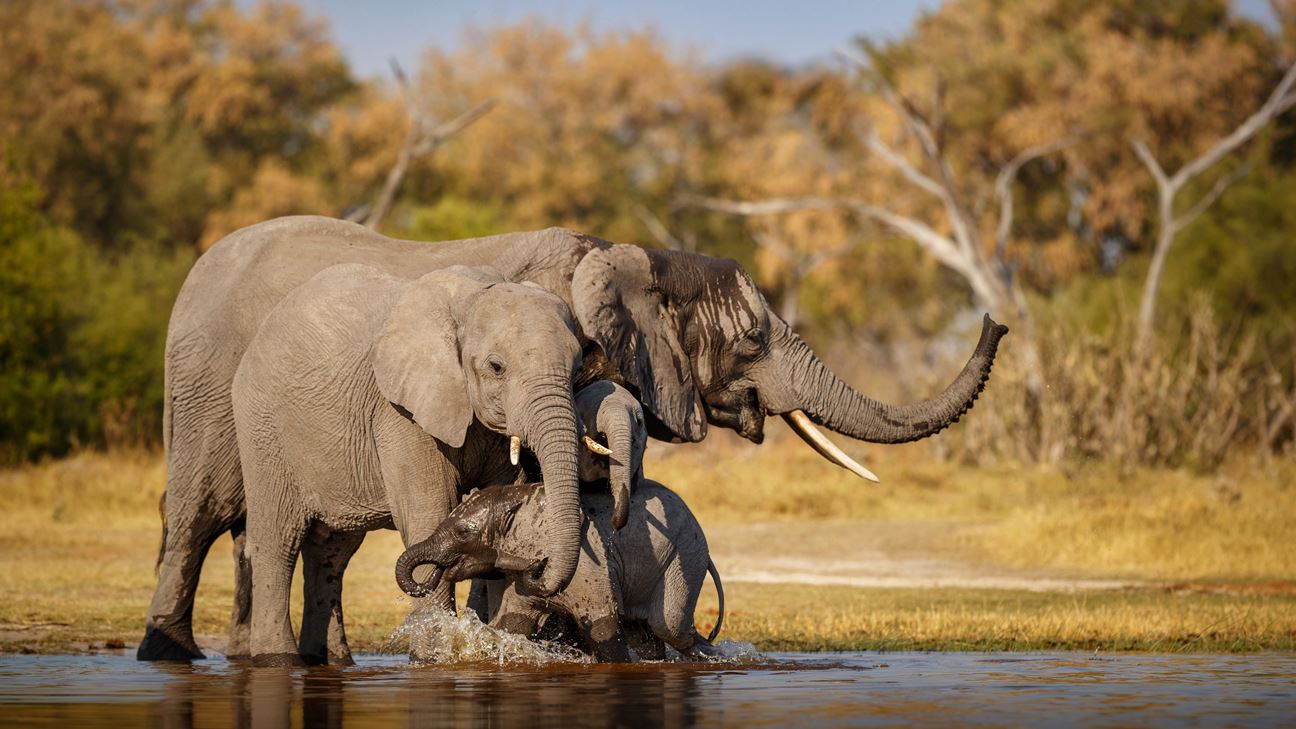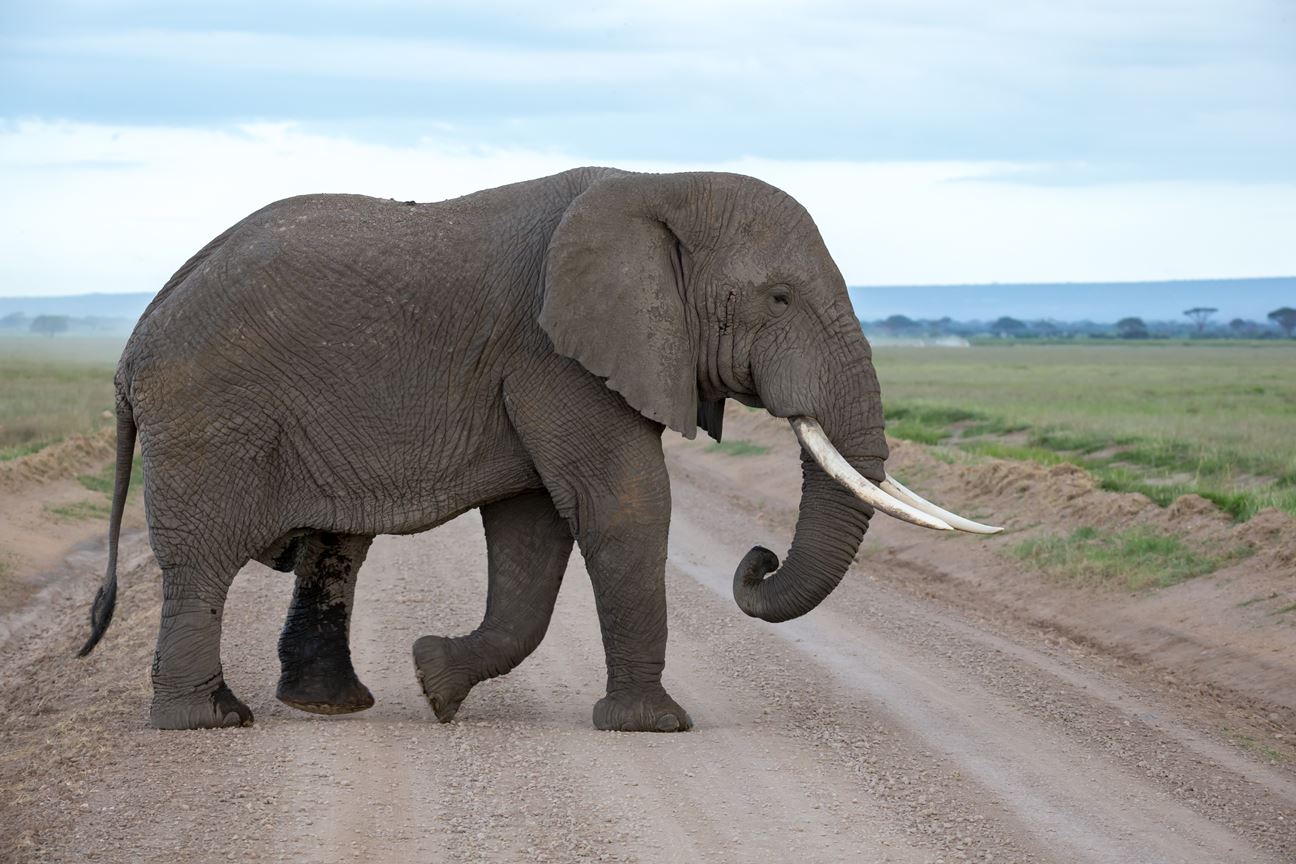They are more than their cute trunks, strong tusks, and lovable ears; elephants play an inevitable role in our everyday ecosystems. Here are some ways the help the world!
Did you know that over 60 million years ago, what we call elephants were actually just small, rodent-like creatures that were only about 2-feet high? It’s incredible to think that those creatures evolved to be the largest land mammals on Earth today!
Notably, alongside this growth and evolution, their role in the planet and the ecosystem has also expanded exponentially. Today, they are considered keystone species, meaning that they have a disproportionate influence on the structure and function of their habitats.
This World Elephant Day, let’s celebrate the massive impact and influence of the tusked animals on our ecosystem by learning all about how they help!

They Are Seed Transporters
Elephants are the largest herbivores in the world and they eat a lot of plant material, including fruits and seeds. They can travel long distances and disperse the seeds in their dung, which acts as a fertiliser. In this manner, elephants have been known to help propagate seeds of more than 300 plant species, some of which depend exclusively on elephants for their survival!
This way, elephants help regenerate the vegetation and create new habitats for other animals!
They Are Ecosystem Engineers
Elephants are very strong and can literally change landscapes through their sheer power. When partaking in activities like trampling forests and grasslands, they end up making room for their littler friends from other species to coexist. By clearing away excess vegetation, they also create firebreaks and curb the risk of wildfires.
Elephants also help facilitate water flow for themselves and other wildlife by digging water holes in dry riverbeds. Additionally, many animals benefit from the salt licks they create by digging up minerals from the soil!

They Are Tourism Magnets
Elephants are one of the most popular attractions for tourists who visit Africa and Asia. They generate income and employment for local communities, as well as awareness and support for conservation efforts.
Tourism can also help reduce human-elephant conflicts by providing incentives for people to coexist peacefully with elephants.
Elephants can also boost the value of other ecosystem services, such as carbon sequestration, by attracting visitors who are willing to pay for them!
They Are Biodiversity Protectors
Elephants play a vital role in maintaining the biodiversity of their ecosystems. They help create and maintain habitats for many other species, such as birds, insects, reptiles and mammals.
In fact, elephants have been named as a prime umbrella species, meaning that by protecting elephants, we also protect many other animals that share their range!

They Are... in Need of Our Help
With so much to offer, elephants are a precious species whose welfare and conservation is important to our world in so many ways! Today, with only 27,000 elephants in India — as compared to about a million a decade ago — there is a clear decline. Elephant conservation efforts, while reporting some increase in populations every year, are also continuing to face threats like:
- Habitat loss and fragmentation: Large areas of natural habitat needed for elephant survival are occupied, reduced, and divided by human activities. As a result, the animals face isolation, starvation, inbreeding, etc.
- Human-elephant conflict: Elephants often come into contact with humans as they search for food, water and space. This is known to result in crop damage, property destruction, injuries and deaths of both humans and elephants.
- Poaching and illegal trade: Elephants are hunted for their ivory, meat, skin and other parts, which are sold in illegal markets. This affects the social structure and behaviour of elephant groups, and decimates their populations.
- Reproductive challenges: Elephants have a low reproductive rate and face many challenges in breeding successfully, posing a considerable challenge in increasing their numbers.
Elephants are important contributors to the world we live in and deserve our respect and protection. These issues require urgent attention and action from governments, conservation organisations, researchers, local communities and the public. By conserving elephants, we also preserve the ecosystems they help and the services they provide. So, let’s make an active effort to support them as much as they support us!
Happy World Elephant Day!